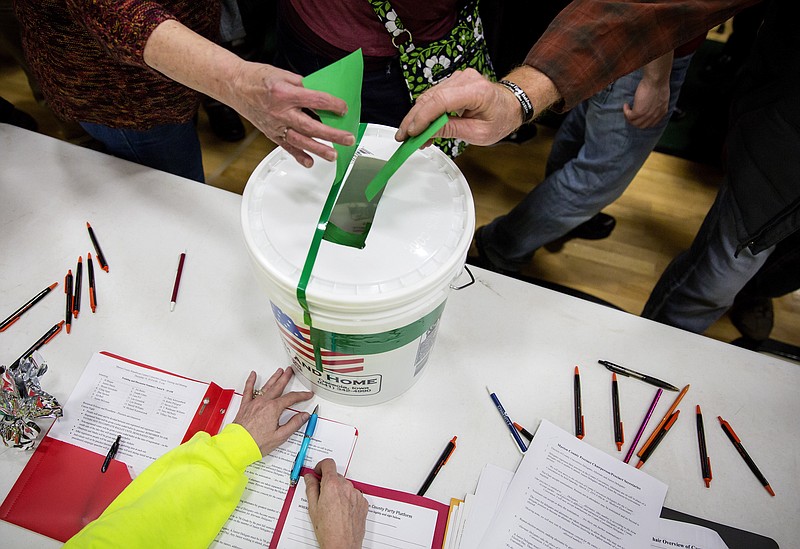On the morning after - after the Iowa Caucus, that is - the Democrats moved on to New Hampshire to continue waging a battle that's been simplistically labeled one for heart or head.
Bernie Sanders, angling for our hearts (as well as our heads), pulled an amazing 49.6 percent of the votes, according to The Associated Press, while Hillary Clinton, appealing to our pragmatic heads (and hearts), eclipsed Sanders by a hair with 49.9 percent. Martin O'Malley - who we hope to see back on the Democratic political stage again someday - garnered 0.6 percent.
Across the partisan divide, Donald Trump lost to Ted Cruz by 3.3 percentage points and felt it: The Donald's blowhard Twitter account was uncharacteristically quiet for about 15 hours, according to campaign reporters. When Trump finally returned to making his digital campaign slams, he blamed the "unfair" media and the voters. Yes, the voters:
"I don't believe I have been given any credit by the voters for self-funding my campaign, the only one. I will keep doing, but not worth it!" he tweeted Tuesday morning.
Would that he would make America great again by shutting up permanently.
Despite the outdated tradition of the Iowa Caucus with its sad scrap-paper ballots, we did learn some things from the romp in the corn:
* Sanders was supposed to be "unelectable." That doesn't look to be especially true since he ended the night in a virtual tie with the established Democrat who just a few months ago was deemed "coronated" and the "heir apparent" with an expected "cakewalk" to the nomination.
But if Iowa is supposed to serve just two purposes - winnowing the field and proving the viability of marginal candidates - then it's a given that Bernie Sanders is for real and Hillary Clinton is going to have to earn the nomination, not coast to it.
* Voters don't love Donald Trump as much as he loves himself, and Iowa also shows us - ominously - that Ted Cruz is considerably more popular with voters than with his fellow Republicans.
* The old Republican Party seems destined for the history books. Now the GOP has a new, more ultra-conservative, ideological party in control - one that doesn't seem at all willing to adapt to today's world (or demographics). What's that saying: If you're not willing to adapt, you're going to love extinction?
* Money for money's sake doesn't buy votes. Jeb! Bush spent $25,000 per Iowa voter - more than all of the other candidates, according to thefederalist.com. He received 3 percent of the vote.
' Polls don't mean much. The last 13 media polls had Trump and Clinton winning. Instead, Cruz had a clear win and Rubio was nipping at the Donald's heels, while Sanders and Clinton tied. Media coverage, too, was lopsided, but not in the way Trump claims. Media watchers say some 60 percent of news coverage of GOP candidates was given to Trump, yet in Iowa, the populist GOP candidate got only 25 percent of the vote while the populist Democratic candidate, Sanders, received 50 percent of the vote.
Mollie Hemingway, columnist for thefederalist.com, posited: "Why are the media obsessed with the GOP's populist candidate, when 75 percent of GOP voters in Iowa voted against him?"
With New Hampshire and South Carolina ahead, the stakes grow higher - especially for Democrats and moderate Republicans who understand that most of our country's dysfunction hasn't been in the White House, but rather in the halls of Congress.
No matter our preferred flavor of Democratic political revolution - better to call it reform - we need to keep this current batch of ultra-right-wing and ultra-narcissist Republicans out of the Oval Office.
We can ill afford any more Scalias on the Supreme Court, nor more neocon oil crusades, or more pointless climate science denial.
Even if establishment-minded Republicans file like lemmings behind Rubio, he will still be the Florida senator who voted (while he still went to work) for the Sunshine State's "Stand Your Ground" law. He's also in denial of climate change, even as South Florida is swamped with too-frequent tidal floods.
Rally, Democrats. This is the beginning of the long haul.
